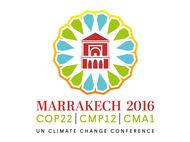The Party’s Over – US Commitments at COP22
- By:
- Edward A. Reid Jr.
- Posted On:
- Nov 29, 2016 at 6:16 AM
- Category
- Climate Change
The 22nd annual global ecotourism conference, officially known as the UNFCCC Conference of the Parties 22, in Marrakech, Morocco has ended. William Shakespeare might have described the conference results as: “full of sound and fury, signifying nothing”.
However, COP22 presented an interesting study in political polarization, at both the national and international levels.
US President Obama, represented by US Secretary of State John Kerry, presented a new “commitment” to reduce US annual CO2 emissions by 80% by 2050, compared with 2005 emission levels. This “commitment” was almost certainly developed in anticipation of a Hillary Clinton presidency, which would have been anticipated to preserve, enhance and expand upon the Obama climate “legacy”. This “commitment” was presented to COP22 after it was obvious that there would be no Clinton presidency, but rather a Donald Trump presidency in combination with a Republican controlled Congress.
There is little doubt that this “commitment” was presented, not only to enhance President Obama’s climate “legacy”, but also to attempt to embarrass President-elect Trump, who is not supportive of the previous US “commitment” to reduce US CO2 emissions by 26-28% by 2025, made at COP21 in Paris, France in 2015; and, would not be expected to be supportive of an even more far reaching “commitment”. Both of these US “commitments” were made as “Executive Agreements”, on President Obama’s sole authority, rather than as treaty commitments ratified by a two-thirds vote of the US Senate. Therefore, both of these “commitments” are also subject to abrogation by executive action.
The Secretary General of the UN and the Chair of the UNFCCC both stated essentially that the movement toward clean energy committed to at COP21 was “unstoppable”, suggesting that President-elect Trump might somehow try to stop this movement. However, there is no indication of any intent on the part of President-elect Trump to stop such a global movement. Rather, the President-elect has merely indicated that he does not support the existing US “commitment”; and, almost certainly, would not support this additional “commitment”. There is no reason to believe that Trump’s lack of support would stop other nations from pursuing current and potential future “commitments” to reduce annual CO2 emissions.
President-elect Trump has stated that he opposes the Obama EPA “Clean Power Plan”, which effectively requires utilities to shutter many existing coal-fired power plants and replace their capacity with natural gas, solar, wind, biomass or other capacity as required. Trump has not suggested that he would interfere in utility decisions to replace existing coal-fired generating capacity, but merely that he was opposed to forcing those decisions by EPA regulation. The environmental community has been quick to label Trump as a “climate denier” or “climate change denier”, though he neither believes that the earth has no climate, nor that the earth’s climate has not and does not change.
Meanwhile, at COP22, as has been the case since COP15, the developing and undeveloped nations have continued the refrain: “Show me the money.” They demand “commitment” from the developed nations of $100 billion per year, apparently in perpetuity, to assist them in adapting to the adverse effects of global climate change, none of which have yet occurred. The current level of global funding toward this “commitment” is far less than the level demanded; and, is likely to remain so for the foreseeable future. President Obama has provided some funding, without congressional approval, though it appears unlikely that President-elect Trump will seek to expand that funding to the level demanded; and, even less likely that he would attempt to do so without congressional authorization.


